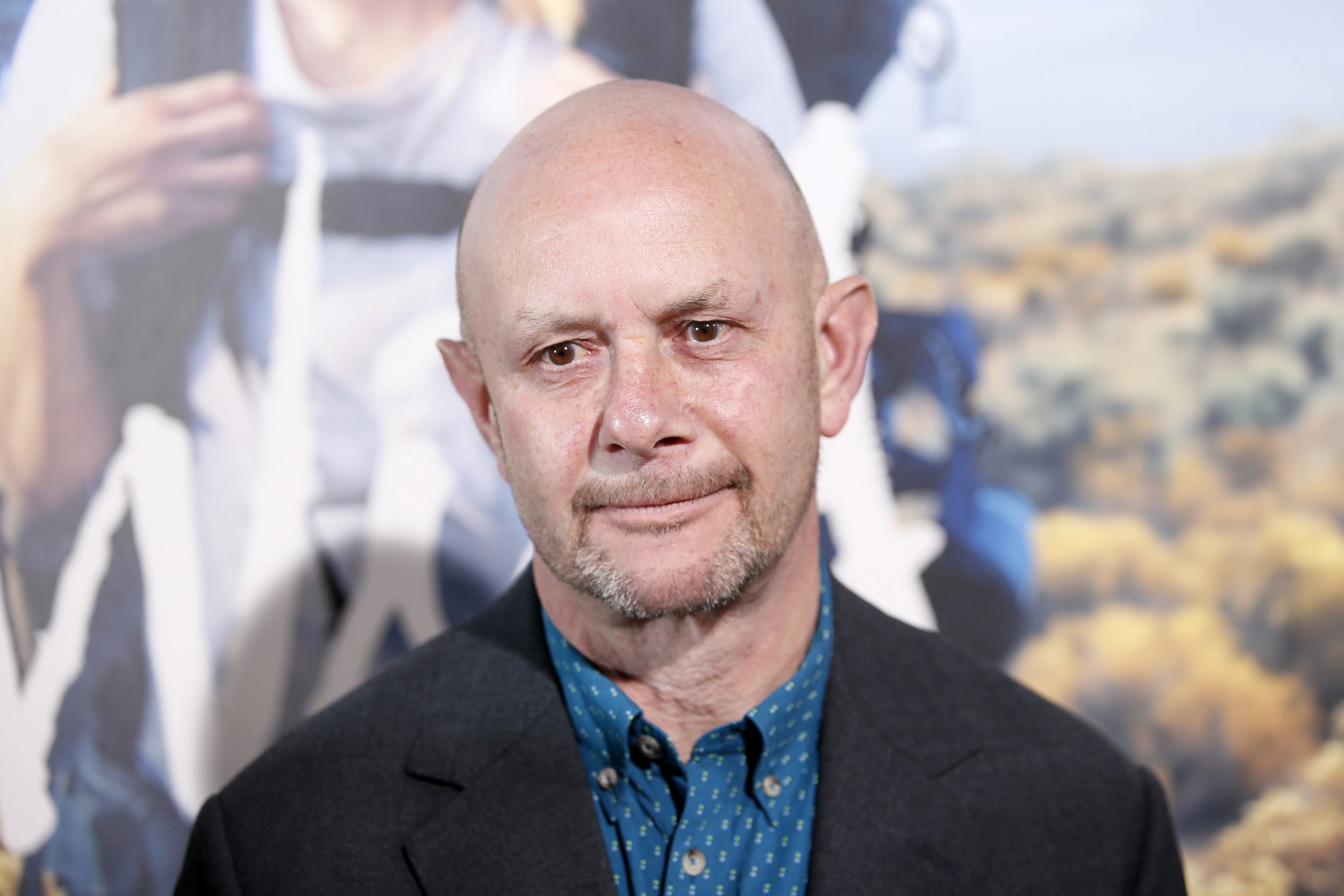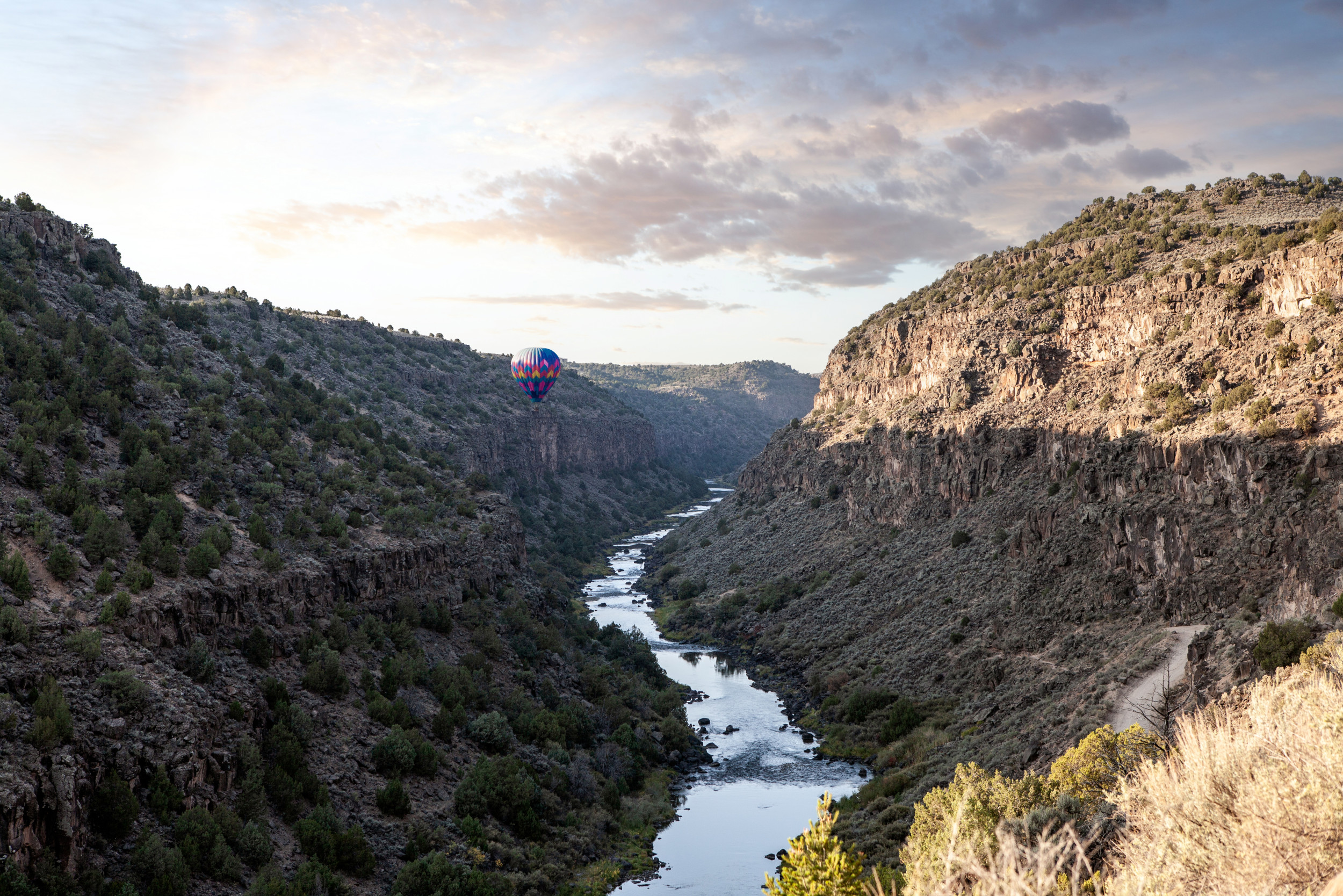
When Newsweek met author Nick Hornby in the green room of the Nourse Theater in San Francisco to interview him for a profile, he was still smarting from being harassed by an American TSA agent while entering the U.S. from Toronto. "I thought I was just talking to him, and he said, 'How does this work, an author tour?' I said you go around to a bookstore–and he said, 'People buy tickets?' Sometimes they buy tickets, sometimes it's in a bookstore. 'So money changes hands?' I said, well, tickets, books. And he said, 'You've got to get a visa for that.' And then I was left in this room, told I couldn't leave, couldn't use my cellphone, and by the time they let me out the flight had gone, I'd had an afternoon event in Chicago…" Hornby was here promoting his latest novel, Funny Girl, about a fictional British sitcom in the early '60s.
Funny Girl captures the dream of the writer's room: a small group of people trying to make comedy. Was there a romance for you about that idea?
There's a romance for me about the idea of collaborative work. The movies I've done that have worked, the most fun I've had is sitting in a room with a really clever director, a really clever independent producer, maybe a development person from the BBC, having very intense conversations.... And I think, 'This is great, this so much better than work.' But everyone takes it seriously.… I wanted to write about comedy in particular because then it's sort of unambiguous about whether it's serious work or not. It's more about the tension between the seriousness with which it's taken and the end result. Whereas if they were doing Chekhov or something I feel as if they would have lost the point…
In 1964 we had three television channels--one of them we didn't watch because it was an educational channel.… So there were only two, the BBC and the commercial channel. And if you hit big with a show, people got figures of nearly 30 million for a sitcom.… I think a lot of the writing going on in England was really good and there were a couple of writing duos, I think their work was art. And they were serious about trying to say something about England but they did it for mainstream comedy shows.…
It's the dream of your protagonist, Sophie, to be the English equivalent to Lucille Ball; was there anyone like that in England?
No, and that was one of the things that started me on it. I read a great biography of Lucille Ball and just [remember] looking at her enormous influence on American comedy, particularly American comediennes, and thinking why didn't we have one? Maybe it was just because Lucy was Lucy…
Do you remember when it became apparent to you that there were writers behind these TV shows?
The two guys that my writers, Tony and Bill, look up to, [Ray] Galton and [Alan] Simpson, I was aware that they were kind of famous. They'd done a couple of big radio shows and then they did some big TV shows; they were famous enough that someone like my mum would say, 'Oh, it's Galton and Simpson'; one looked out for their stuff. So I suppose so. I was talking about this with friends: Who was the person who made you think, 'Oh, this is a job!' And mine was Tom Stoppard because my mum was his wife's secretary and he was so nice to me and my sister when we were kids. We went to his house and I thought, 'This is a nice house! And this guy writes plays!' [laughs].… And he'd been a journalist at like a local paper in Bristol.
You adapted your first book, Fever Pitch, for the U.K. film but none of your own books since. Was it because of that experience?
No, it was fun. With that one in particular it was a memoir that was going to have to become something else to be a movie, and I thought, 'Maybe I should be the one to do that.' Plus I hadn't written a novel, my first son had just been born, I wasn't in the business of turning down any kinds of offers of work at that stage. But when High Fidelity got optioned, I think I'd already started my next novel and I thought, 'I don't think I want to do this. I don't want to spend three years putting 300 pages into a book and then the next three years taking 200 of them out again,' which is pretty much what happens. I love adapting other people's work but I don't want to do my own.
So An Education was the first?
The first after a long gap, yeah. My wife [Amanda Posey] is an independent producer; she'd taken time off to have kids. When you're an independent producer in England the properties you tend to get your hands on are not the hot ones. And I said, 'I don't think there's any point in trying to option books that nobody else wants, 'cause there's a reason that nobody else wants them. I think you've got to find another way of doing it, looking for stuff that no one else would think of.' Then I read this article inGranta by Lynn Barber, it was like six pages, and I said, 'Look at this: there's a movie in here.' And she optioned it and then when she started thinking about writers I found myself feeling very possessive of the material, so I said, 'I want to do this.'
There are a lot of real characters in Funny Girl, from Jimmy Page to former Prime Minister Harold Wilson. Did you want to weave this with the fabric of real life?
Yes! Realism if very important to me anyway when I write and I suppose I'm sufficiently anal about popular culture that I think I'm cheating by making them show up. But once I've made it up, I'm going to fit it in as close as I possibly can. So the competition is real television programs, and the BBC executives are real and of course Harold Wilson would want to meet Sophie because he was the great media manipulator; he was very quick to give the Beatles medals and he'd be very quick to bring Sophie into No. 10.
One review said this would make a great TV series. Is that something you thought of when you were writing?
It doesn't worry me when I'm writing if things like that cross my mind. I feel long in the tooth with all that stuff, and at this stage in my career I know that almost certainly something will get optioned; it doesn't mean it will ever get made. It's really not worth thinking about because it all takes so long. One thing I did think about was, I wonder if anyone would ever give money to make a black and white episode of the show? I have bits of script at home; I was going to write a whole one and never did.…
Do you think you are changing the tenor of what you do or were you always a comic writer?
I wouldn't want to write something that was only comedy. This book is serious to me because it's about things I care about. I know there are jokes in it and comic scenes in it. But if I can't see the potential to move people with the material, then I'm not very interested. Variety called my work "dramedy" [laughs]. An Education was a dramedy, I saw when it got reviewed.
Do you have more sympathy for the people who have adapted your works, having adapted others' work a few times yourself now?
I've always had sympathy for them. I think it's a different job. Everyone seems to think my books are cinematic and I'm really not sure that they are. They tend to have real people in them but they tend to be real people who just sit in rooms thinking and talking. [laughs] I always thought they were a real challenge to adapt. In High Fidelity there was a lot of John Cusack talking to the camera in that movie; I love it, I think it works really well. But you can see they've basically gone in there and said, 'There's nothing we can do with this.'… I think they came to the conclusion that it couldn't be a conventional movie because there wasn't enough plot in there.… It was such a happy experience, to be adapted by those guys. And I never minded for a moment that they moved the location. The biggest tribute that they paid to the book was that they thought it was about them and they grew up in Chicago, so they wanted to set the movie in Chicago. They wanted to shift the cultural references to reflect their own. And I thought, 'OK these are people who know what they're doing.' It's not the kind of lazy job where they copy out the names of the songs; it really became about them in a very healthy way.
You stated in one of your Believer book columns ("What I'm Reading Now") that you have an aversion to repeated characters. How do you feel about the iterations of Will Freeman, hero of About a Boy, in the movie and TV show?
The TV series feels very odd to me; I didn't know it was happening.… When I sold the movie rights, the TV rights went with it. That usually happens but usually no one does anything with it. And they're not very polite people as a rule, so if they're not legally contracted to say anything–'Oh, look here, it says we don't have to tell him, so we won't.'
When did you find out?
Probably about a month before it went on the air.… I noticed there was a Facebook page for it.… It doesn't bother me. The books tend to last. I think it was Dashiell Hammett, someone said to him, 'Why do you let Hollywood ruin your books?' And he said, 'They're not ruined; they're sitting up there on the shelf.' I think the whole language we use about adaptations is wrong; we talk about books being 'turned into' films, and of course they don't get turned into anything. Somebody uses something in the books and makes something else out of it. And if the movie's any good people read the book, and if the movie's not any good, it dies, and if you're lucky, people read the book anyway.
Have you watched the TV show?
The funny thing is my kids love it. I watched it and thought, 'Oh, OK. I don't know if I'll be watching that again.' And the boys were sitting there, laughing like drains and it became one of the very few programs that everyone in the family is happy enough to watch.
What was the genesis of the Believer column, in which you write about what you're reading versus what books you bought?
At the time I had just stopped writing about music for the New Yorker, which was not a job I enjoyed particularly. I knew David Eggers and he had just started the magazine and asked if I would do a music column for them. I said I don't know if I want to write about music at the moment but I'd just been on this reading journey. I said, 'As far as I know no one does that; anyone who is paid to write about books is paid to read a particular book and write about it. Can I just write about reading, whatever I've read that month whether it's new or old or nothing, can I write about that?' And they said sure.… I kind of found a voice for it. People have asked me in England if they can reprint it in newspapers but it seems to be such a private conversation between me and the readers of that magazine that I don't think it would work so well. I love doing it and it really changed my reading in a helpful way.
How so?
Because the Believer has this "no snark" rule; you're not allowed to be unkind about books. And I realized how careless I was about what I chose to read. Quite often I was choosing something that I was pretty sure I wouldn't enjoy, because everyone was reading it and I was picking it up saying, 'Oh this guy, I hated his last one and I'll hate this one.' And then: 'Oh, look I do hate it!' So I just started choosing books with much more care and that I could eliminate 90% of the books I wasn't enjoying. It was really extraordinary how much more enjoyable it came to be pick up those books.
Uncommon Knowledge
Newsweek is committed to challenging conventional wisdom and finding connections in the search for common ground.
Newsweek is committed to challenging conventional wisdom and finding connections in the search for common ground.
About the writer
I'm a freelance writer and editor based in Brooklyn, New York; Salisbury, CT; and Palo Alto, CA. My writing has ... Read more
To read how Newsweek uses AI as a newsroom tool, Click here.








